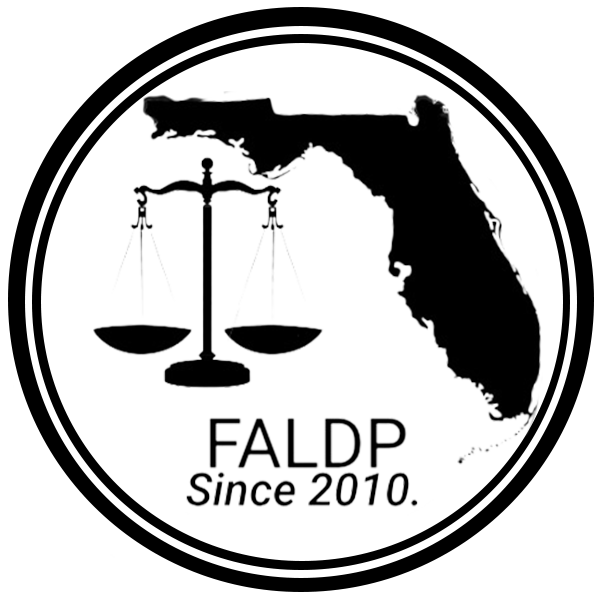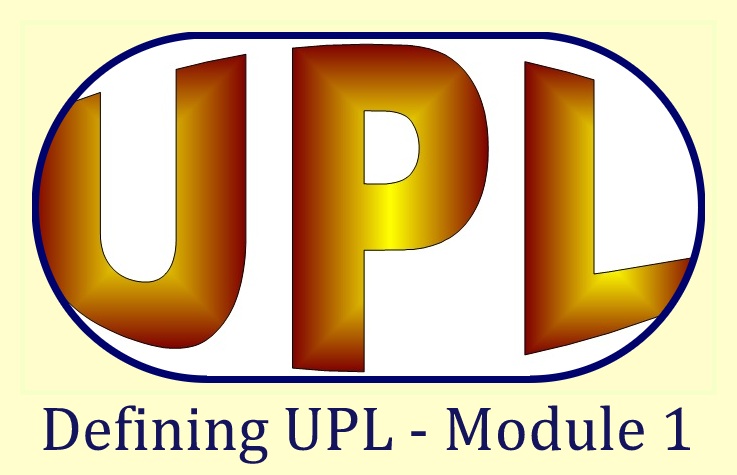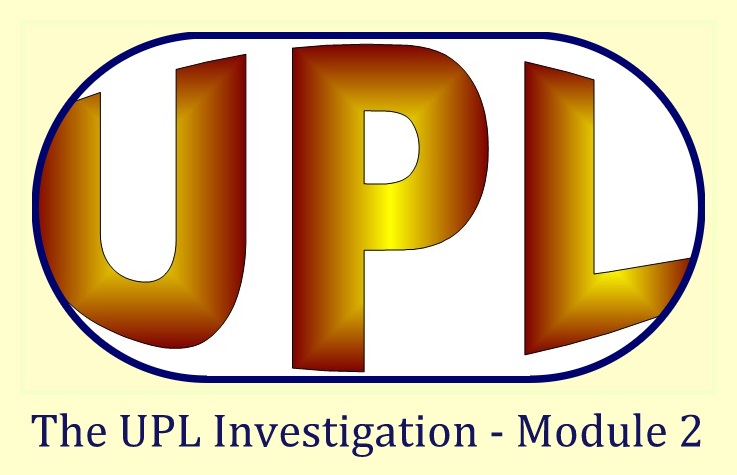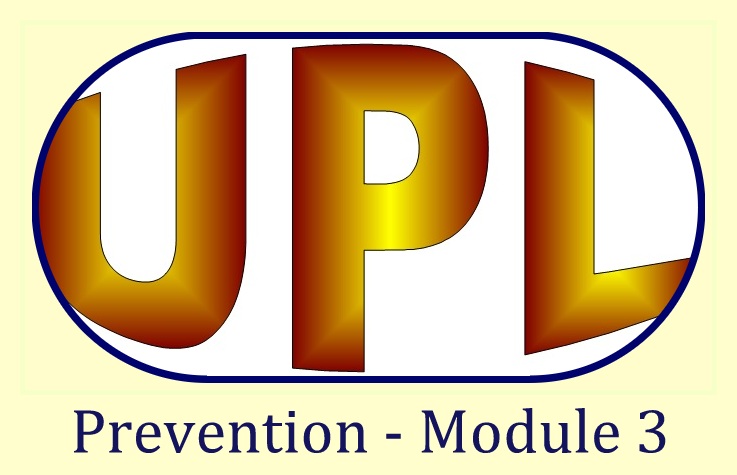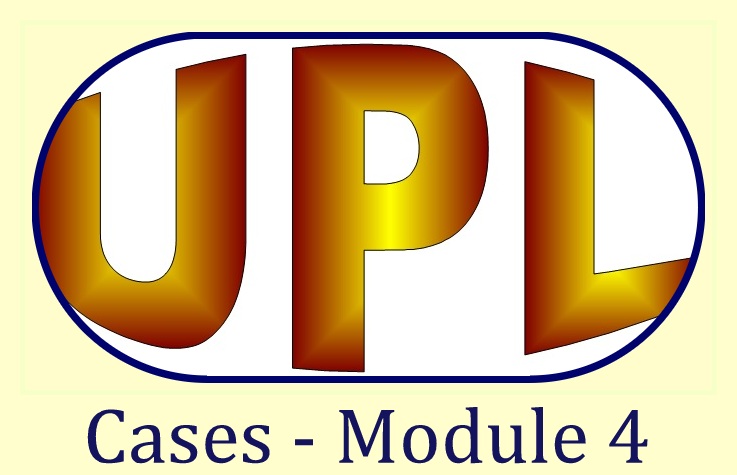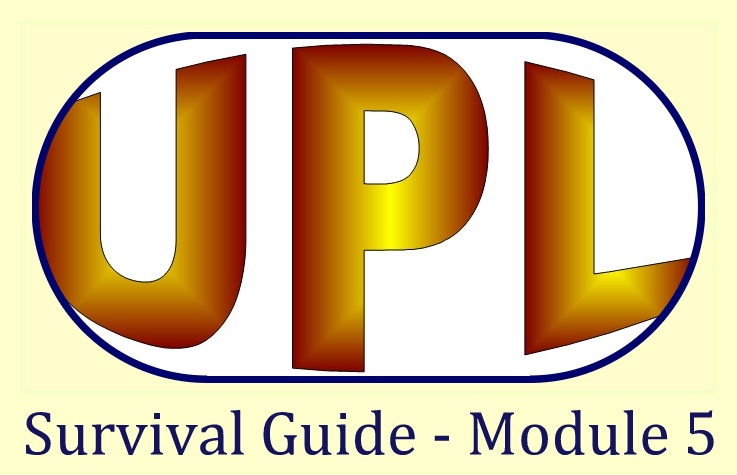800-515-0496
Avoid UPL! ~ Course Navigation
Forewarned is Forearmed.
We strive to educate our members about the unauthorized practice of law for the member's sake, and also for consumers. We doubt that consumers need to be protected from document preparers any more than they need to be protected from attorneys - more likely, a healthy dose of protection from attorneys could benefit a lot of consumers. Consumers need us. Attorneys have priced themselves out of the market ... if there is no legal dispute, just documents, why hire an attorney?
Without document preparers many consumers will have no possible way to pursue or defend a legal cause. For many consumers, hiring an attorney is out of the question. So, if somehow, the Florida Bar and attorneys in general manage to make us all disappear, document preparers will manage. We'll find other jobs or start other businesses. Consumers would lose the option of proceeding pro se with the help of a document preparer, by their side, preparing documents and explaining procedure.
The last thing that we want to do is intimidate document preparers. At the same time, we feel it is a disservice to our members to sugar coat UPL issues. We want you to know the rules. We want you to know how to avoid being accused of UPL. And we want you to continue thriving and preparing documents for your pro se customers.
We have made this course mandatory, because even though document preparers may think they know the rules, or intend to be aware of the issues, we want to make sure that you have a clear understanding. The good. The bad. The ugly.
Defining Unauthorized Practice of Law
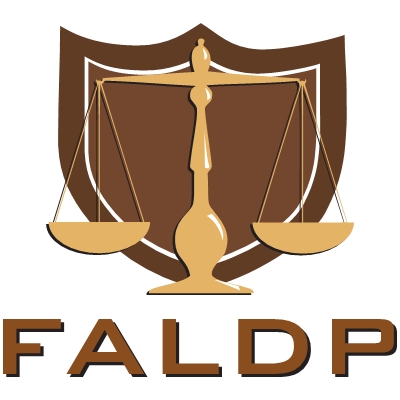
It’s a conundrum. How do we avoid practicing law, when no one seems to know the definition of practicing law? I queried google and arrived at the American Bar Association’s web page with definitions of the practice of law, broken down by state.
The Florida Bar v. Sperry, 140 So.2d 587, 591 (1962)
“Many courts have attempted to set forth a broad definition of the practice of law. Being of the view that such is nigh onto impossible and may injuriously affect the rights of others not here involved, we will not attempt to do so here. Rather we will do so only to the extent required to settle the issues of this case.
It is generally understood that the performance of services in representing another before the courts is the practice of law. But the practice of law also includes the giving of legal advice and counsel to others as to their rights and obligations under the law and the preparation of legal instruments, including contracts, by which legal rights are either obtained, secured or given away, although such matters may not then or ever be the subject of proceedings in a court.
We think that in determining whether the giving of advice and counsel and the performance of services in legal matters for compensation constitute the practice of law it is safe to follow the rule that if the giving of such advice and performance of such services affect important rights of a person under the law, and if the reasonable protection of the rights and property of those advised and served requires that the persons giving such advice possess legal skill and a knowledge of the law greater than that possessed by the average citizen, then the giving of such advice and the performance of such services by one for another as a course of conduct constitute the practice of law.”
So after stating in Sperry that defining the practice of law is “nigh onto impossible”, the court opinion continues to attempt it, (even though it states otherwise). “Representing another before the courts is the practice of law.”
However, certain agencies allow the practice of law by nonlawyers in administrative proceedings, therefore this is the authorized practice of law by nonlawyers.
Sperry is still widely depended upon to define the unlicensed practice of law in Florida. And no small wonder that it is widely used -- it is also very broad. Read the last paragraph over a few times -- the paragraph in bold italics.
Now think about how many times in your daily life someone who was not an attorney explained a contract to you or advised you of important rights. Unlicensed practice of law? I think not.
Maybe it was a Realtor listing your house for sale; or the young man who signed you up for your cell phone plan; or the lady at the title company who presided at the closing of your house; or your homeowner’s association telling you why you may not paint your house blue; or the cable guy locking you into a two year contract; and on and on.
Even worse, as I read that paragraph another time, it seems that if the person explaining the contract or law knows more than you do, then the person doing the explaining is most definitely engaging in the unlicensed practice of law. Ridiculous.
Practicing Law or NOT Practicing Law?
This section is in a gray area because UPL itself is a gray area. There is no clear definition of the practice of law in Florida. So there can be no clear definition of the unauthorized practice of law. We use the term "unauthorized practice of law" rather than "unlicensed practice of law", because as far as we know attorneys are members of the Florida Bar, and not specifically licensed. As long as we are splitting hairs and obsessing about semantics, we might as well be thorough.
UPL
- Document preparer referring to himself/ herself as a paralegal or legal assistant.
- Selecting forms for pro se litigants.
- Telling consumers what they should legally do or not do. Giving legal advice.
- Discussing case strategy with a pro se litigant.
- Advertising "free consultations".
- Advertising to the Latin Community as a "notario publico".
- Describing yourself or referring to yourself as an "Immigration Consultant";
- Representing another before the court.
NOT UPL
- Explaining court procedure.
- Providing legal information.
- Helping pro se litigants find court rules
- Preparing documents according to pro se litigant's written instructions.
- Taking information verbally from pro se litigants when using Florida Supreme Court approved forms.
- Referring to your customers as clients. Customer is the preferred term in this association, but there is nothing official from the Florida Bar about using the term client.
Nobody seems to know whether these are UPL or not:
- E-filing for your customers. We recommend that the customer efile their own documents. However, to be blunt, some customers are simply not capable. So they need assistance. If you do efile for your customer, use their user name and password, and do not add your name or email address as a contact person.
- Using the word "legal" in your business name. We believe it is over reaching for the Florida Bar to demand that document preparers refrain from using the word legal in their business name at all. We believe that as long as the word "legal" is used along with "document services" or something similar, and not simply "legal services" the use of the word "legal" should not be a problem. However, more than one document preparer has been required to remove the word legal from their business name. And one document preparer was even required to remove the word legal from her site entirely. Please note - we have used the name - Florida Association of Legal Document Preparers - since 2010, with no comment from the Florida Bar.
There are very few bright line rules that even attempt to define the unauthorized practice of law. Well meaning, diligent, document preparers can find themselves in hot water (third degree felony) hot water with absolutely no intent to do anything wrong. A document preparer can inadvertently cross the line into the murky netherworld of UPL without realizing it.Some of the "rules" are scattered in case law dating back to the early 1960's. We are unsure how document preparers are required to follow "rules" when they are not clearly codified. Nonetheless we at FALDP do our best to educate and inform our members how best to avoid even the appearance of UPL.
Copyright 2010-2023. All rights reserved.
